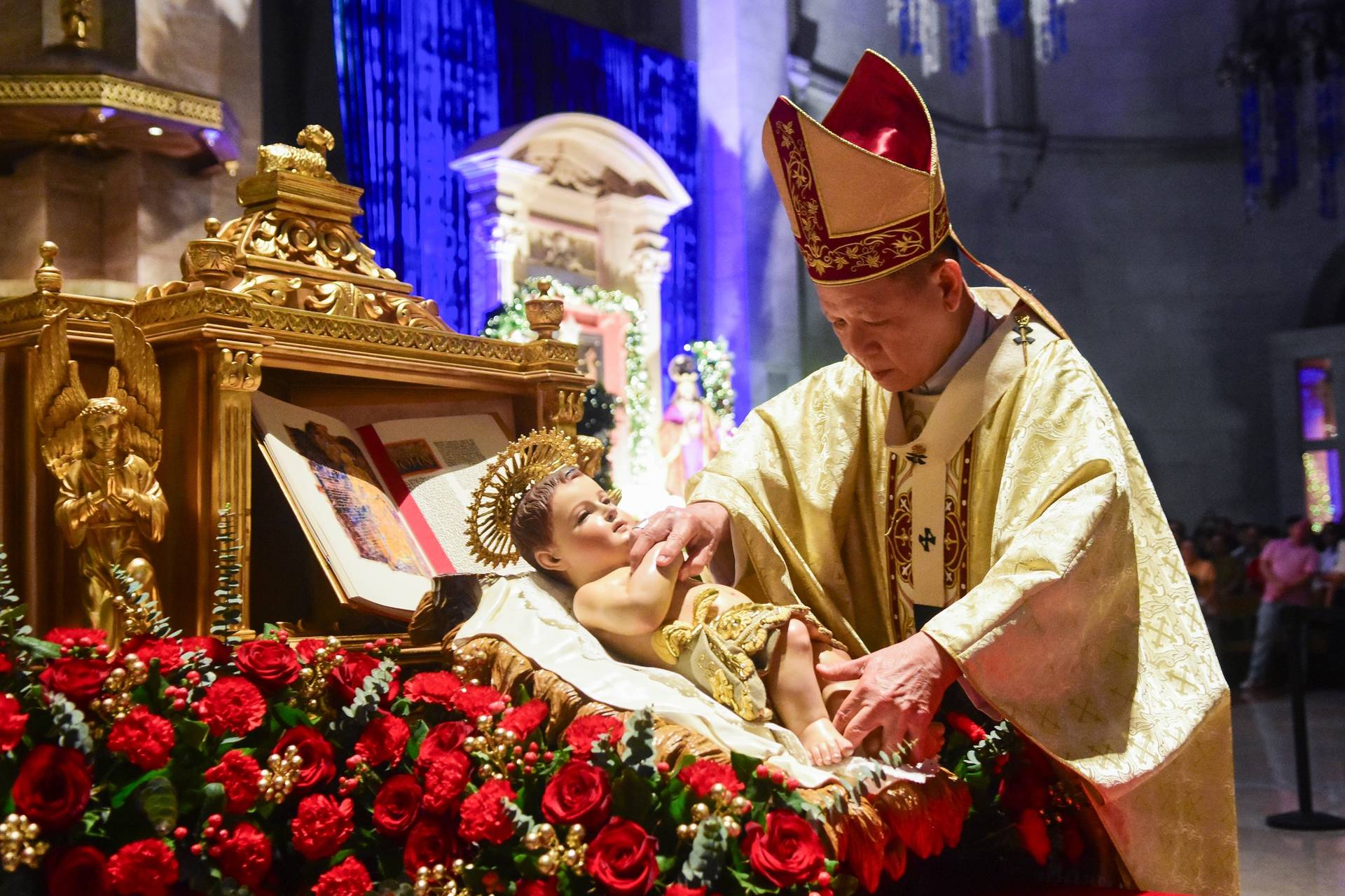This past week, the feast of the fourth century martyr St. Blaise was celebrated throughout the Catholic world. In his day, the saint was revered for his care of the sick.
In the centuries after his death, his intercession is still sought for miracles relating to throat ailments. On his feast day, therefore, throats are blessed in the liturgy and related ceremonies.
The week before St. Blaise is the feast of Saints Timothy and Titus. These two saints are turned to for discomfort of the abdomen. In like fashion, in mid-December, Saint Lucy is prayed to for diseases of the eyes or problems with vision.
What is the reason for this spiritual appeal for bodily ailments? What does the body have to do with our souls?
This is a pressing question as much of contemporary Western thinking denies the spiritual identity and importance of the human body. Oftentimes, the body is refused any substantial place in a meaningful understanding of life or spiritual growth.
Many current thinkers wrongly diminish the human body as just an instrument or a mere tool for some function. The holistically human view, however, sees the human person as consisting of a beautiful complement of body and soul.
This broader view sees the human spirit in need of a body as both a complement and mediator to help it experience transcendence and to journey towards God, the Ultimate Good, as well as the body in need of a soul in order to direct it to transcendental and eternal things.
The human person’s relationship with her body is radically unique. It is not like her interaction with any other material thing, whether that’s her car, cell phone, or computer. The body is not like any other object. The person is her body. Not merely her body, but truly her body.
The way she experiences herself or others is through her body. The process by which a person encounters transcendence and wrestles with the meaning of life is through her body.
It must be realized, therefore, that the question of the human body does not deal only with biology and chemistry, politics and economics, but also with meaning and value.
And so, in the Christian tradition, the different parts of the body are appropriately honored and blessed. These blessings are especially given through the intercession of saints, those men and women who have reached the perfection of body and soul.
If the body is so noble, what can be said of the Christian ascetics, who seem to offend and harm the body? How are we to understand the desert fathers, such as Abba Daniel who fought sleep in order to keep vigil through the night in prayer, or Abba Macarius and his resolution of silence and strict solitude, or Abba Benjamin’s radical fasting? What explanation is possible of Benedict’s horarium, Francis of Assisi’s poverty, or Ignatius of Loyola’s indifference?
Does John of the Cross summarize the authentic Christian view when he wrote that the human person is to deprive himself of the “gratification of the appetite in all things,” giving up all the desires for the delight of hearing, smelling, seeing, tasting, touching, with the result of finding oneself in a “darkness and void”?
In a spirit of consistency with the body’s spiritual identity, the appropriate explanation of Christian asceticism begins with the dignity of the complete human person, not only her soul but also her body. This dignity calls the person to excellence, to actualize the image of God within her.
Due to the person’s fallenness, she is marked by an attraction to lesser and disordered goods. This attraction and the surrender to it makes the person a slave to self-gratification, to gnostic self-hatred, whims and fancies, as well as hurtful social trends and opinions. The person can become lost within this dark pool and become a stranger even to herself or her own body.
She must labor, therefore, to order and move beyond them. This involves a discipline, an oblation of her desires and sense delights, so that greater goods can be reached and enjoyed. This is why saints and people of good will take on penances and deny themselves comforts or luxuries.
It is not a hatred of the body, but a true love of their body’s goodness and its capacity to share in the spiritual growth of their souls.
By herself, a person cannot do this spiritual work. She needs help. For this reason, the devotional life of the Christian has always involved the saints, holy ones like Blaise, Timothy and Titus, and Lucy. In this intercession, the saints help the person to know her body’s dignity and grow in wholeness and holiness.

















